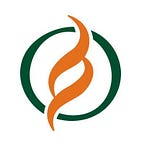TB Care in the Heart of the City
Photos and story by Tristan Bayly
A version of this story was originally posted on the Challenge TB website.
Bringing TB diagnosis and treatment to a city like Dhaka is no simple task. It is huge and densely populated, with nearly 20 million residents, and throughout Bangladesh, an estimated 120,000 people with TB remained undiagnosed in 2017. In addition to government health facilities, USAID’s Challenge TB project is working with the International Centre for Diarrhoeal Disease Research, Bangladesh, to find missing cases of TB through two state-of-the-art TB clinics in the city. The aim is to bring TB diagnosis and care closer to the heart of the city.
The TB Screening and Treatment Center in central Dhaka is one such facility. It is bright, clean, and modern and is equipped with rapid GeneXpert testing and digital X-ray. Leaflets that explain TB symptoms and encourage people to visit the center are distributed in busy places such as mosques. Some patients are referred by pharmacists trained to recognize TB symptoms and make clinic referrals rather than prescribing generic antibiotics, while others are sent by private doctors for testing.
When patients arrive, they are registered and wait to be seen by a member of the medical staff. A nurse takes their medical history and plays a video of how to produce a sputum sample for testing. The sample is tested using GeneXpert, which can diagnose both TB and drug-resistance within two hours.
One morning, there were eight people in the waiting room. Mahmud was there with his brother Masud, who had been coughing for some time. Mahmud was studying to be a doctor, and he thought his brother might have pneumonia. He prescribed antibiotics, but after three weeks the symptoms remained. They saw a leaflet in their mosque advertising the clinic’s services and came to see if Masud had TB. Their father had TB, and as it is an airborne disease and they share the same house, it was possible that Masud was also infected.
They both knew about TB symptoms and that it can be treated and cured, and Masud was wearing a mask as a precaution. After watching the video on how to provide a sputum sample, Masud went into a separate room to provide the sputum, which was immediately tested in the adjacent laboratory.
Sarwer, also waiting to be seen, was a 52-year-old man just back from Malaysia, where he had worked in construction for the last 10 years. He was weak, gaunt, pale, and had a terrible cough. You could see at first glance that he was not well. His brother in law said he had lost 10kg in a year and has diabetes. Diabetes triples a person’s chances of getting TB, and weight loss is a classic symptom of the disease. This, combined with the cough, made it very likely that he has been infected.
While he was working in Malaysia, he visited a doctor who said he might have TB, but he was only given cough syrup, which didn’t help, and not TB medicine. He had visited a private doctor the day before and was referred here when blood was found in his sputum.
Next was 10-year-old Samiul. His mother brought him because he had a cough and wasn’t eating properly. She first went to a local pharmacy to seek help and advice. The pharmacist had been trained through Challenge TB to identify people with TB symptoms and sent them to the clinic for further testing.
His mother didn’t know how TB spreads and still thought he may have got it by sharing utensils or cups. She said she didn’t know anyone around them with the disease, so she didn’t know how he could have gotten it.
This is just a small cross-section of those who come through the clinic's doors on an average day. In just 11 months, 10,084 people have been through the screening process at the clinics in Dhaka, and 6,467 people with TB symptoms have been identified and tested. Of those, 868 were ultimately diagnosed with TB and 676 are currently on treatment.
Mahmud and Samiul’s test results were negative for TB and they were sent to their local doctors for further help. Sarwer was diagnosed with TB and put on treatment for six months. He is making good progress with daily treatment and nutritional supplements and is expected to make a full recovery.
About this story:
Challenge TB is a USAID-funded project that aims to prevent the transmission and disease progression of TB, improve patients’ access to TB care services, and strengthen TB platforms. Management Sciences for Health (MSH) is part of the consortium implementing the project and leads the project’s activities in Bangladesh.
For more information on the International Centre for Diarrhoeal Disease Research, Bangladesh, visit: www.icddrb.org
To learn more about our work, visit msh.org and stay up to date with MSH by subscribing to our email series.
